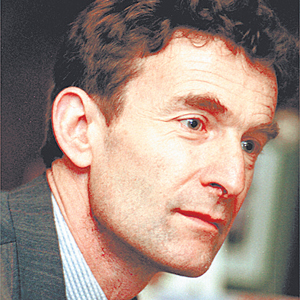“Ladies and gentlemen, welcome to Leningrad,” said the air stewardess as we approached St Petersburg airport. I kid you not.
Whether a deliberate piece of mischief, an innocent mistake or an embarrassing gaffe, she had conveniently overlooked the course of recent history. And a pretty significant period at that.
Had anyone from Russia’s 2018 World Cup bid been present on the same flight, the stewardess in question – not, it should be said, from Russia’s national airline – would doubtless have been put right.
Because the one thing Russia is trying desperately to do as it approaches the all-important vote on December 2 is to cast off the vestiges of its strict and secretive past and prove to the world that the new Russia is as open and modern a society as any nation in Western Europe.
The same theme was promulgated time after time during a whirlwind four-day media tour of the country’s facilities.
Everyone connected with the Russian bid - whether in formal interviews with bid chiefs or informal, invariably vodka-fuelled chats with facilitators behind the scenes - was anxious to put across the same view.
That a vote for Russia by FIFA would be a vote for the NEW Russia and a vote for the future of football.
Whether FIFA’s Executive Committee, representing a cross-section of world opinion, buys that view remains to be seen.
Media visits are curious affairs. Feted and feasted, it is easy for a group of objective international reporters to be seduced by the hospitality and generosity of their hosts while rarely, if ever, having the chance to glean opinion at grassroots level.
On this occasion, nothing was too much trouble for our gut-busting yet relaxed Russian hosts.
Even when this correspondent missed his return flight after being accidentally sent to the wrong airport and spending almost five hours on Moscow’s choking highways, organisers went into trouble-shooting overdrive by going the extra mile – so to speak — to make up for the unfortunate error.
Such gestures are hugely thoughtful and leave a lasting impression but they have a wider significance – that Russia’s highly sensitive bid team knows it is engaged in the fight of its life taking on three rival European bids from established organisers of major footballing events.
Not only that. Whether they like it or not and however much they deny it, the spectre of racism hangs over Russian football.
Bid officials will be have been relieved to hear that FIFA and UEFA have decided to take no action against the Russian Football Union’s failure to punish Lokomotiv Moscow for displaying racist banners.
Lokomotiv fans celebrated Peter Odemwingie’s sale in the transfer window with a banner showing a banana and the message: “Thanks West Brom.”
But both governing bodies ruled that because the game in question was a domestic issue they had no jurisdiction.
The RFU’s disciplinary body opted not to fine Lokomotiv, with bid chief Alexei Sorokin insisting that the banana banner was not racist.
He and his colleagues repeated that stance on numerous occasions this week as they attempted to beat the drum for the country’s multi-culturalism.
It was not an entirely convincing argument and it remains to be seen whether the aspect of racism ends up having any impact on December 2.
What is indisputable, after four days in the country, is that Russia has the passion, the commitment, the financial resources and the vast potential to put on an excellent World Cup. If South Africa can do it, so undoubtedly can they.
The question is whether FIFA will take the view that Russia is as attractive an unchartered destination as South Africa was. This year’s World Cup, after all, was promoted as a World Cup for Africa as a whole.
There are many in the game who dispute whether that’s how it actually turned out – after the event at least.
Russia’s challenge in the weeks to come will be to convince FIFA that their bid would be a World Cup for more reasons than just vested interests.
Andrew Warshaw is a former sports editor of The European, the newspaper that broke the Bosman story in the 1990s, the most significant issue to shape professional football as we know it today. Before that, he worked for the Associated Press for 13 years in Geneva and London. He is now the chief football reporter for insideworldfootball

